Africa
France: Prime minister proposes cutting two public holidays to save money in 2026 budget
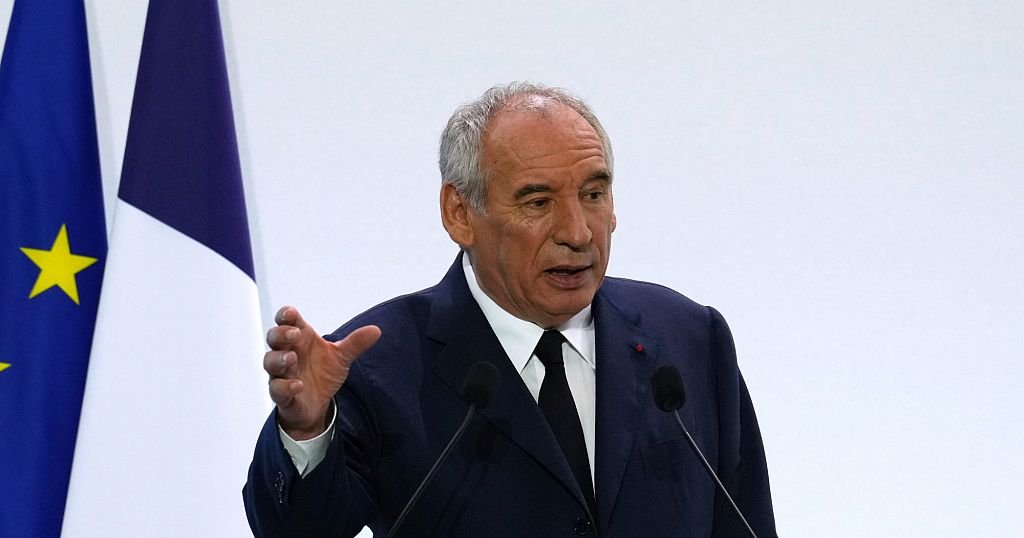
France’s prime minister proposed on Tuesday to cut two public holidays from the country’s calendar, in an effort to save money in next year’s budget.
François Bayrou targeted Easter Monday which he said has “no religious meaning”, and 8 May, the day marking the Allied victory over the Nazis in World War II.
“The entire nation needs to work more to produce and for the country’s overall activity to be more significant throughout the year, so that France’s situation improves”, Bayrou said in an address to lawmakers.
Bayrou’s proposal is among a raft of spending cuts laid out in a sweeping, and potentially doomed, budget plan.
He argued that removing two state holidays would bring in tax revenues generated from economic activity, contributing to around €44 billion euros in overall savings.
“It means working more to earn less. It means asking us to work for free. When are we going to talk about dividends [for shareholders]?”, said Sophie Binet, the secretary-general of the General Confederation Labour union, on TV channel France 2.
France currently has 11 public holidays per year, slightly below the European Union average of 12,07.
Bayrou’s proposal also drew criticism from opposition parties.
“Bayrou declares a social war”, said Mathilde Panot, the president of the leftist La France Insoumise group at the National Assembly, in a press conference.
“The abolition of two public holidays, as meaningful as Easter Monday and 8 May, is a direct attack on our history, our roots, and the working France”, said far-right National Rally president Jordan Bardella on X.
President Emmanuel Macron tasked Bayrou with crafting a budget that shaves costs to bring down France’s staggering debt and deficit, while also adding billions in new defence spending to face what Macron says are resurgent threats from Russia and beyond.
Among other spending cuts on Tuesday, Bayrou said that a third of civil servants would not be replaced when they retired. He also said France would scale back its subsidies for prescription medicine.
The CGT called for demonstrations in autumn to protest the measures.
With no parliamentary majority, Macron’s centrist grouping must win support from adversaries on the left and right to pass the budget this fall.
Bayrou’s job is precarious, and he could be voted out if he fails to reach compromise on the budget.
Africa
Low turnout for municipal elections in Togo: Silent boycott or just a slow start?
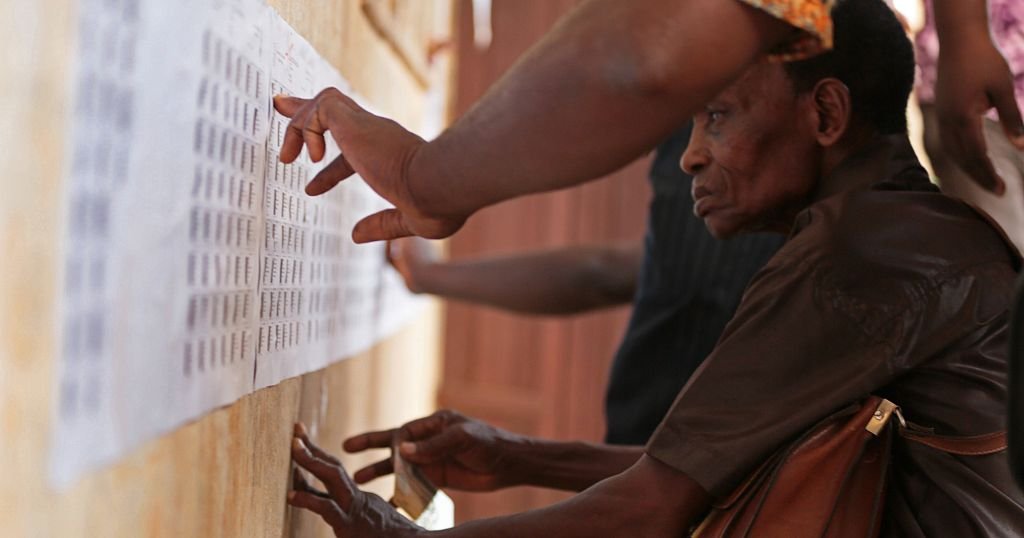
Polling stations in Togo opened on July 17, 2025 for the country’s municipal elections. But by mid-morning, just a trickle of voters had been to cast their votes in the capital Lomé. Are voters boycotting the poll or just not interested? Africanews correspondent Noël Tadégnon went to find out.
It is municipal election day in Togo. On Thursday 17 July, voters are called upon to elect their municipal councillors. But from the early hours of the morning, one thing is clear: turnout at polling stations is disappointing. In Lomé, the country’s capital, several polling stations remain sparsely populated, with voters slow to arrive.
‘For the moment, the centre is a little quiet. People are coming in slowly, but it’s not like that at the moment. I hope they will come and vote anyway,’ says Dalmeida Ayélé, president of a polling station, visibly concerned about voter turnout.
Those who did make the trip to the polls, however, voted in a peaceful atmosphere. No incidents were reported early in the morning, despite a tense political climate marked in particular by the call for disobedience launched by the M66 movement, a collective of activists mainly from the Togolese diaspora.
Civic duty
‘I just fulfilled my civic duty this morning. I was very proud to do so because it is a civic duty that every citizen must perform,’ said Waguéna Barthélemy, a voter encountered outside a polling station.
The stakes are high for this local election. In a country seeking effective decentralisation, many voters hope to see their future municipal councillors bring new momentum to their communities. ‘My expectations for these elections are that the population will wake up and take charge of managing their communities,’ explains Kuevidjen Folly.
Sénou Lodowa expresses the same impatience: ‘They should try to see things and change things. Because everything that isn’t working needs to work.’
While the morning has been relatively calm, the question of turnout remains unanswered. Is this simply a delay in voters arriving, or is it a sign of deeper disengagement, or even a silent boycott? We will have to wait until the end of the day to fully gauge the extent of this demobilisation.
Africa
France shuts down last military base in Senegal after 65 years
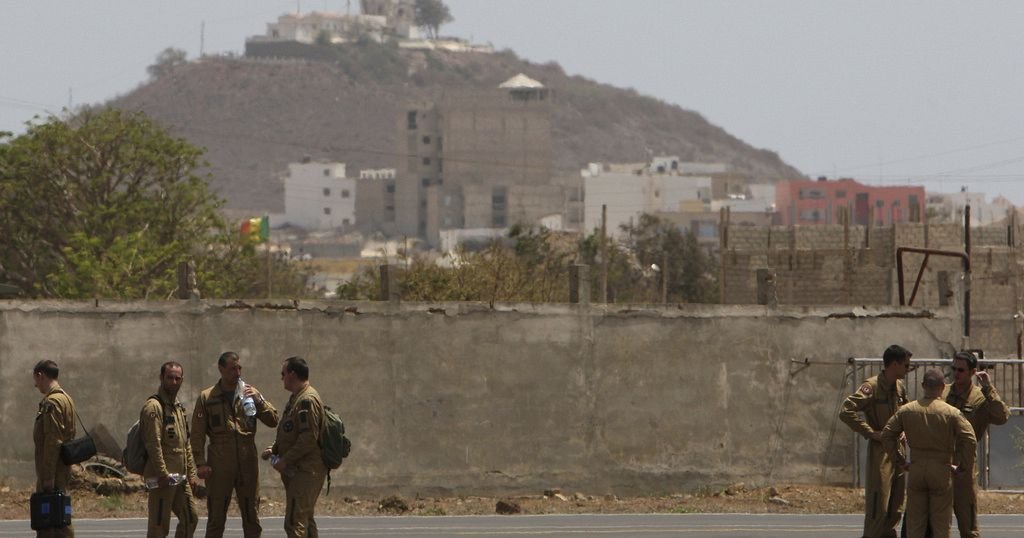
France returned its last two military bases to Senegalese forces Thursday morning amid a wave of anti-French sentiment in West Africa.
General Mbaye Cissé and Chief of the French command in Africa, Pascal Ianni, oversaw the official handover ceremony in Dakar, which marks the end of France’s 65-year presence in Senegal.
“This is an important turning point in the rich and long military history between our two countries.” General Cissé said in his speech during the event.
He noted that the French and Senegalese armies had “defined new objectives” to “give new meaning to the security partnership” between the two countries.
“The Senegalese armed forces are looking forward to consolidating the many achievements made in the quest for strategic autonomy,” he concluded.
The French army has had a permanent base in Senegal since the country’s independence from France in 1969. Camp Geille, where around 350 French soldiers are stationed, is the last base to return to Senegalese command after several other military installations have been shut down since March last year.
Senegal pushes to end French influence
In December, President Bassirou Diomaye Faye declared that his government would work towards ending foreign military presence on Senegalese soil by 2025.
The announcement followed growing criticisms of neo-colonial influence in Senegal, which culminated in several French-owned businesses being torched and looted during mass demonstrations in 2021.
“Senegal is an independent country, it is a sovereign country, and sovereignty does not accept the presence of military bases in a sovereign country,” Faye said to AFP.
Several scandals have soured the relationship between Senegal and its former colonial ruler. Faye announced the closure of French military bases on the 80th anniversary of the mass killings of West African soldiers by French forces.
Members of the Tirailleurs Senegalais unit, who fought in France’s war against Nazi Germany, had been protesting delays in salaries and poor living conditions when colonial soldiers shot them.
President Emmanuel Macron sent a letter to President Faye this year, admitting that France committed a “massacre”.
France’s waning diplomatic influence in West Africa
The closure of the Senegalese military operation is just the latest diplomatic blow to France as a wave of French-critical governments have ascended to power in West Africa.
Coups in France’s former colonies, Burkina Faso, Niger and Mali from 2020 to 2023 have resulted in the ejection of 4,300 French soldiers, with military leaders cutting ties with France in favour of new allies, including Russia.
In 2022, France pulled out of the Central African Republic, and earlier this year, France handed over its last bases in Ivory Coast and Chad. The base in Djibouti remains France’s last permanent mission in Africa, with approx. 1500 soldiers stationed.
Africa
New US law targets fentanyl-related copycat drugs driving overdose deaths
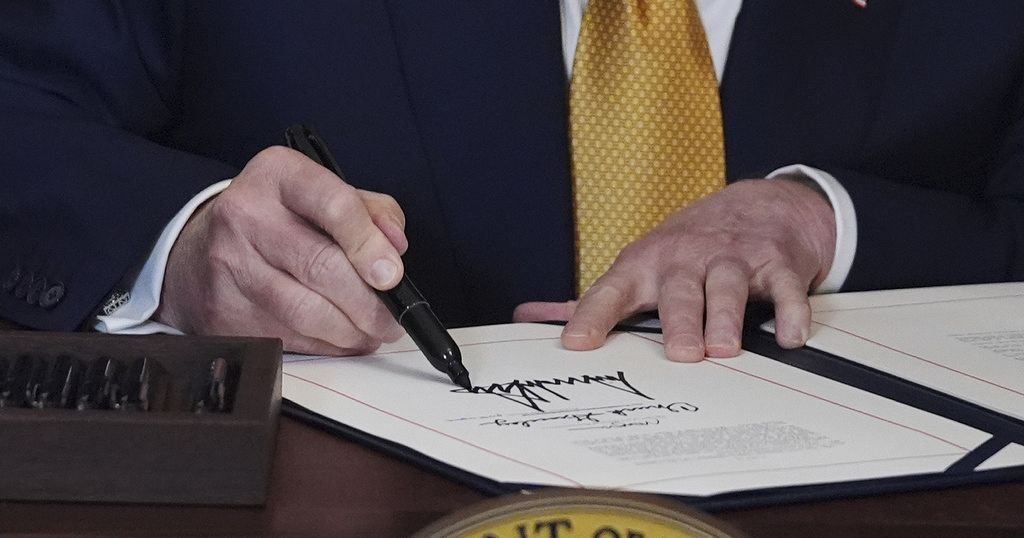
US President Donald Trump has signed into law a bill aimed at quelling the fentanyl crisis sweeping America.
The law targets all fentanyl-related drugs, including copycat versions of the potent opioid that evade current US regulations.
Illegal forms of the drug, often made in China, have been driving US overdose deaths for years.
“With this bill, we are officially and permanently classifying all fentanyl related substances as Schedule 1 narcotics, which is actually a very big deal,” Trump said at a signing ceremony at the White House on Wednesday.
“That doesn’t sound like much. It’s a big deal, as they will tell you. Meaning, anyone caught trafficking these illicit poisons will be punished with a mandatory ten year minimum sentence in prison. We’ll be getting the drug dealers, pushers and peddlers off our street and we will not rest until we have ended the drug overdose epidemic. And it’s been getting a little bit better, but it’s horrible. It’s horrible.”
More than 70,000 Americans died of opioid overdose in 2023, according to official statistics. That number has dropped significantly in the last year but as of February 2025, overdose remains the leading cause of death for Americans aged 18-44, according to the US Centers for Disease Control and Prevention.
Doctors sometimes prescribe fentanyl for severe pain. The legislation does not affect fentanyl when used for medical purposes.
-
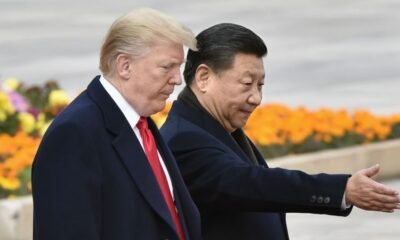
 Asia5 days ago
Asia5 days agoThe deadly drug that’s complicating US-China trade
-

 Lifestyle5 days ago
Lifestyle5 days agoHungary’s oldest library is fighting to save 100,000 books from a beetle infestation
-

 Lifestyle3 days ago
Lifestyle3 days agoA rap festival near the Arctic Ocean delights crowds under the midnight sun
-
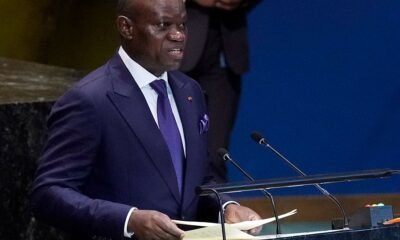
 Africa4 days ago
Africa4 days agoGabon launches electoral process for September 27 local and legislative elections
-

 Europe4 days ago
Europe4 days agoGOP senators tout Russia sanctions bill as ‘sledgehammer’ for Trump to end war
-

 Europe5 days ago
Europe5 days agoUkraine says it killed Russian agents suspected of assassinating intelligence officer
-

 Europe4 days ago
Europe4 days agoCole Palmer leads Chelsea to dominant victory over PSG to win FIFA Club World Cup
-

 Africa4 days ago
Africa4 days agoForty years and counting: CAR once again postpones local elections




